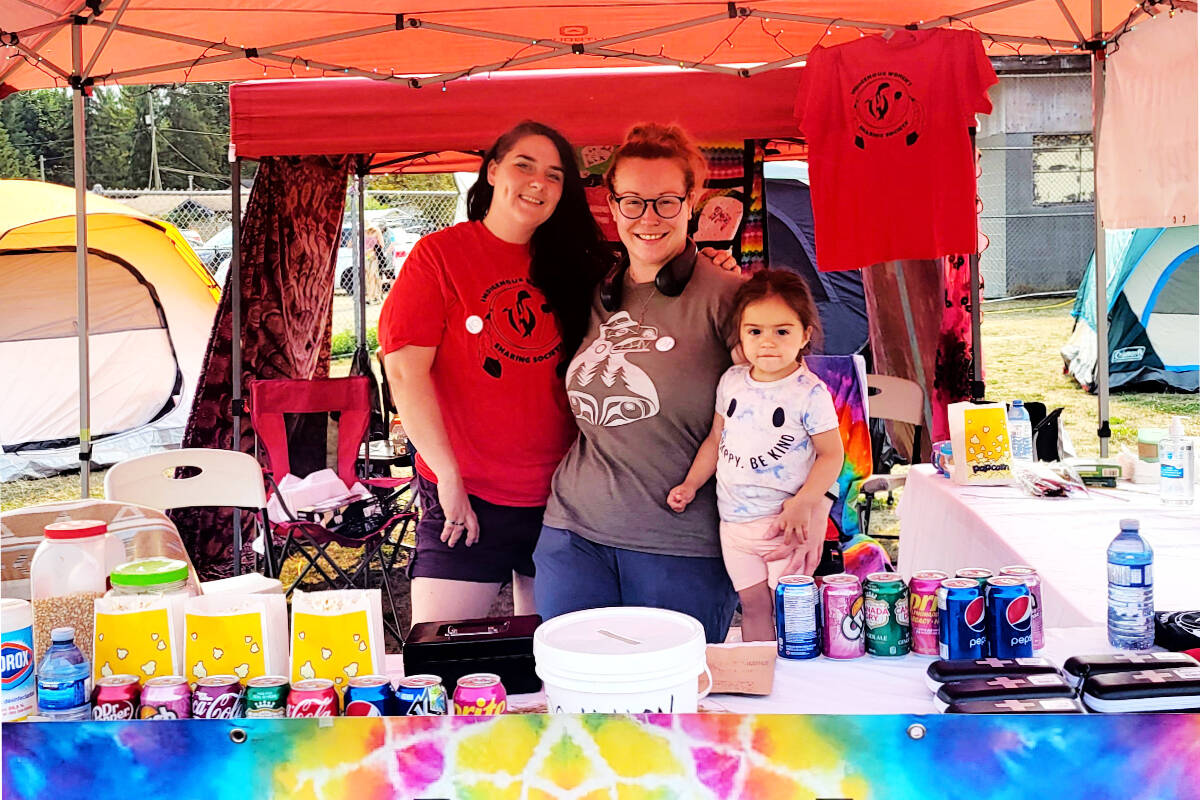Fighting the toxic drug crisis

Volunteers Sarah Lewis, Ashawna Woodcock and her daughter attend a community event to raise awareness of the toxic drug crisis.
Patti Alvarado leads a group of staff and volunteers committed to saving lives in the Comox Valley.
Unbroken Chain, an Indigenous-led harm reduction program at the Indigenous Women’s Sharing Society, supports a growing list of individuals and family members affected by the toxic drug overdose crisis.
Supports include Indigenous harm-reduction education and support, naloxone training, peer support, community education and more.
Most weeks, staff and volunteers support multiple people, having conversations through difficult days and nights, safety planning, providing support to families who have lost loved ones, advocacy in community meetings or connecting people to healthcare and support services.
“We are trying to help people stay alive, as well as mitigate the impacts and harm of the toxic drug poisoning epidemic,” Alvarado said. “The feedback we get from participants is that we have helped save their lives. So, for us, this funding from the Comox Valley Community Foundation, has been a lifesaver.”
Unbroken Chain ensures people with lived or living experience and their families and friends, have a listening ear when they need it most and receive trauma-informed and culturally safe support. The practice reduces harm and creates a judgment-free environment that facilitates and promotes empowerment, self-autonomy, and healing.
Unbroken Chain hosts awareness events and participates in community action meetings to ensure Indigenous voices and those with lived experience are a part of local solutions, a key factor to reducing stigma and harm.
The toxic drug epidemic affects the entire community.
In February, the First Nations Health Authority released information showing COVID-19 pandemic and the toxic drug public health emergency shortened the life expectancy of Indigenous people in B.C. by 7.1 years, between 2015 to 2021.
“We’re seeing illicit substance use more visibly now due to the supply of illicit substances becoming increasingly more and more toxic since the pandemic, but it’s always been there and often behind closed doors,” she said. “Dozens and dozens of people have died in our community. You are fortunate if you haven’t had a family member or loved one affected by it.”
In the last year, the Society’s events have seen an increase of families wanting to ensure they — and their children — know how to use naloxone.
Alvarado encourages the community to attend awareness events, such as Red Dress Day, May 5.
“Being a part of the Indigenous Women’s Sharing Society has been a very welcoming experience. We have a lot of circles and activities where we welcome anyone to join us.”
With additional funding, volunteers and capacity building, Alvarado hopes to expand toxic drug crisis support services locally and on the North Island.
“Unbroken Chain does have a waiting list,” she said. “Unfortunately, we’re not able to help everyone due to the limited resources and the need is great.”
To learn more about the Indigenous Women’s Sharing Society, follow them on social media, or call
WHAT YOU CAN DO
• Fight the stigma. Read reliable sources to understand the causes of the toxic drug poisoning epidemic.
• Talk to people. Attend events, listen to people with lived experience.
• Volunteer. Take part in training and volunteer to help people in your community.
